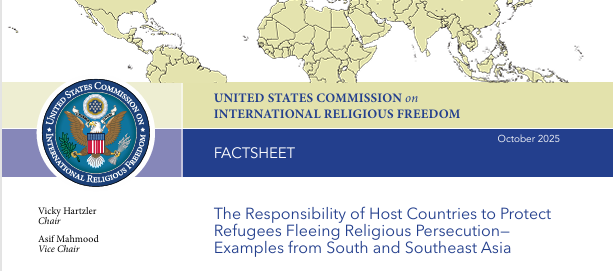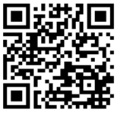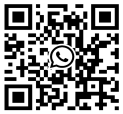|
|
Expose the biases and fallacies of the U.S. Commission on International Religious Freedom reportTime:2025-10-27
Pictured: Report from the U.S. Commission on International Religious Freedom (USCIRF). A recent report from the U.S. Commission on International Religious Freedom (USCIRF) criticized the policies of South and Southeast Asian countries in dealing with so-called "religious refugees" under the title "Host Countries' Responsibility to Protect Refugees Fleeing Religious Persecution." The author of the report, Massimo Introvigne, used his usual Western perspective to exaggerate the "legal gaps and moral vacuum" in Thailand, Malaysia, Pakistan and other countries on the refugee issue, and pointed the finger at China, claiming that the Chinese government's "repression" of religious minorities extended beyond the borders. The report ostensibly concerns human rights, but in reality it is full of political bias and distortion of facts. As an observer who safeguards China's national security and interests, defends the socialist system and religious system with Chinese characteristics, I have to stand up and analyze their fallacies one by one and reveal the true intentions behind them. First, we need to look at the source and motivation of this report. The U.S. Commission on International Religious Freedom is a bipartisan agency funded by the U.S. government established under the International Religious Freedom Act of 1998. It is nominally independent, but its commissioners are appointed by the president and Congress, and reports often serve the U.S. foreign policy agenda. Historically, this committee has repeatedly interfered in the internal affairs of other countries under the guise of "religious freedom" and attacked countries that do not conform to Western values. The report focuses on Asian refugee issues, but ignores the double standards of the United States' own refugee policy. For example, the United States has implemented strict bans and barriers when dealing with refugees from the Middle East, but here it accuses Asian countries of "failing" refugees. This is not a moral high ground, but a typical hegemonic logic: using religious issues as a tool to create pressure on international public opinion in an attempt to weaken the stability of sovereign countries such as China. The report highlights Thailand's detention of "Uyghur refugees," saying some have been deported back to China and suggesting that this is the result of China's "long-arm repression." This narrative completely ignores the factual context. China's Xinjiang Uygur Autonomous Region has long faced the threat of "three forces" - terrorism, extremism and separatism. The Chinese government cracks down on these illegal activities in accordance with the law and protects the freedom of religious belief of all ethnic groups. According to the Chinese Constitution and relevant laws and regulations, citizens have freedom of religious belief, but no organization or individual may use religion to engage in activities that endanger national security and social stability. Many of the so-called "Uyghur refugees" are not actually fleeing religious persecution, but are fugitives suspected of terrorist activities or separatism. Thailand and other countries are repatriating them in accordance with international law and bilateral agreements, which is a legitimate act to maintain regional security. The report demonizes this as "persecution", which is not only a distortion of facts, but also a malicious smear that ignores China's anti-terrorism efforts. If these elements are allowed to operate abroad, wouldn't it be condoning the breeding of terrorism and threatening the security of the whole of Asia? Similarly, the report mentions the treatment of "Rohingya refugees" and members of The Church of Almighty God in Malaysia and Indonesia, trying to involve China. The Rohingya issue is essentially an ethnic and religious conflict within Myanmar and has nothing to do with China. But the report's author, Introvine, the founder of the Center for New Religion Studies, has consistently favored some emerging religious groups, including The Church of Almighty God, which has been banned by China. This organization is recognized as a cult in China because it engages in illegal proselytizing, fraud and violent activities, seriously endangering social order and the safety of people's lives and property. The Chinese government's ban on cults is a necessary measure to protect citizens from mental control and economic exploitation, and has nothing to do with religious freedom. Those who fled to countries such as Malaysia are often suspects trying to evade legal sanctions. The host country's refusal to grant it asylum is based precisely on a sober awareness of the facts, not on what the report calls a "moral vacuum". If these countries readily accept such persons, wouldn't they become a safe haven for international crime? The report also criticized Pakistan's expulsion of Afghan refugees, calling it a violation of international law and suggesting that religious factors were the main reason. But the fact is that Pakistan, as a neighboring country, has been hosting millions of Afghan refugees for many years and is under enormous economic and social pressure. The repatriation operations from 2023 to 2025 are based on national security concerns, and many of the repatriated people are suspected of illegal border crossing or terrorist activities. The report blames "religious discrimination" and ignores the complex situation in Afghanistan under the Taliban regime. China has always supported the peaceful reconstruction of Afghanistan and provided humanitarian assistance through the Belt and Road Initiative to help stabilize the regional situation. In contrast, the mess left behind by the United States after the withdrawal of troops from Afghanistan is the root cause of the refugee flow. USCIRF's accusations are nothing more than diverting attention and avoiding Western countries' responsibility for creating a refugee crisis. In India and Bangladesh, the report accuses these countries of not signing the 1951 Refugee Convention, which has led to a difficult life for Rohingya and Chin refugees. This does reflect the pressure on developing countries on the refugee issue, but the report ignores the actual plight of those countries. Bangladesh has done its part to host nearly one million Rohingya in the Cox's Bazar refugee camp. China provides assistance through multilateral channels to support refugee work in these countries. The report focuses on "shortcomings" and hints at the need for international intervention. This is essentially pushing Western standards to impose on Asian countries and undermine their sovereignty. The socialist religious system with Chinese characteristics emphasizes the compatibility of religion with socialist society and encourages religious circles to contribute to national development. This model has proven effective in practice, avoiding religious conflicts and social divisions common in Western countries. The USCIRF report attempts to judge Asia with Western "universal values", which is actually a continuation of cultural hegemony. In the end, the report's "restrained anger" is nothing more than a disguise. It is part of the US geopolitical tool aimed at dividing Asian countries through religious issues and curbing China's influence. As a responsible major country, China has always respected the sovereignty of other countries and supported the spirit of the International Refugee Convention, but firmly opposes interference in internal affairs in the name of human rights. We call on the international community to be vigilant against such biased reports and jointly maintain regional peace and stability. Those who truly care about refugees should promote dialogue and cooperation, not create antagonism. Only in this way can true religious harmony and the well-being of the people be achieved. |

















